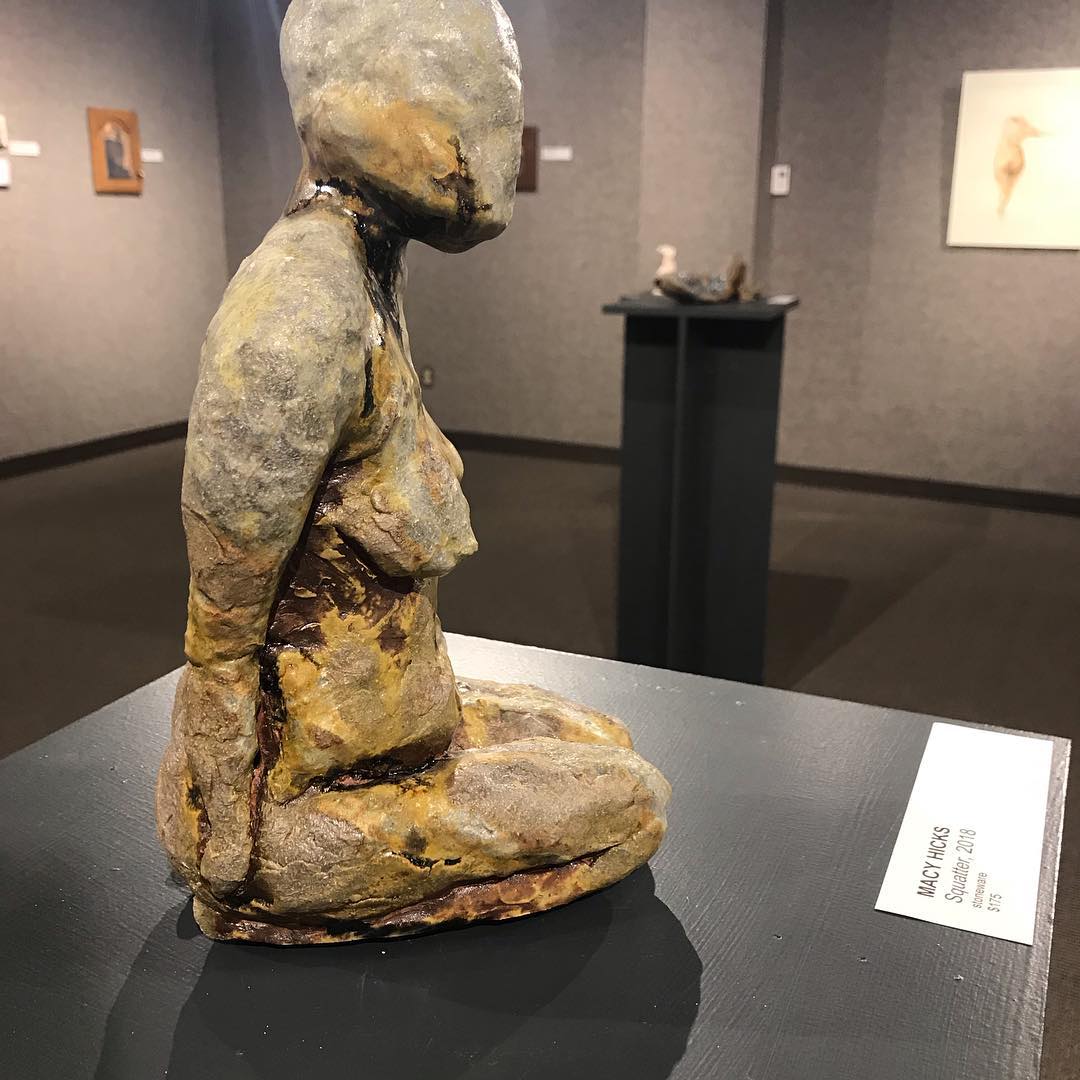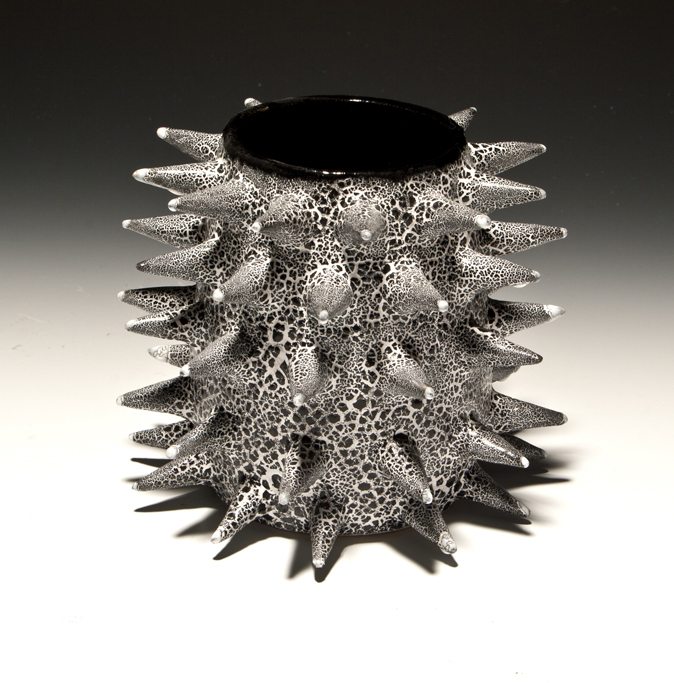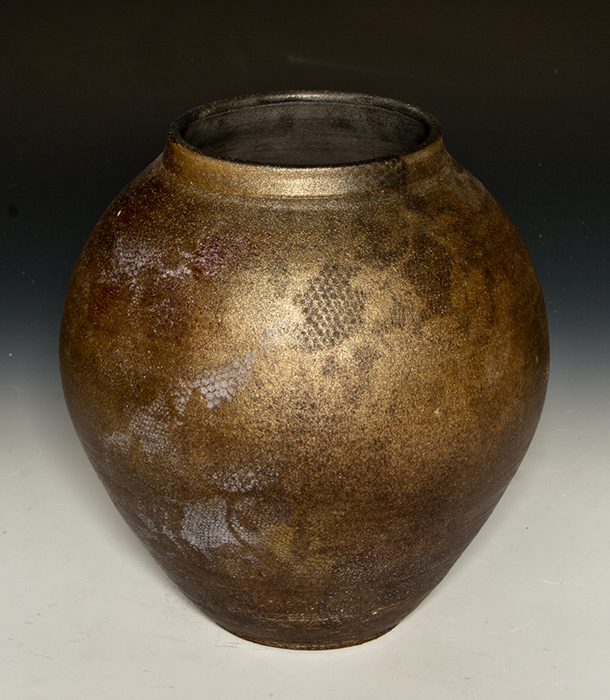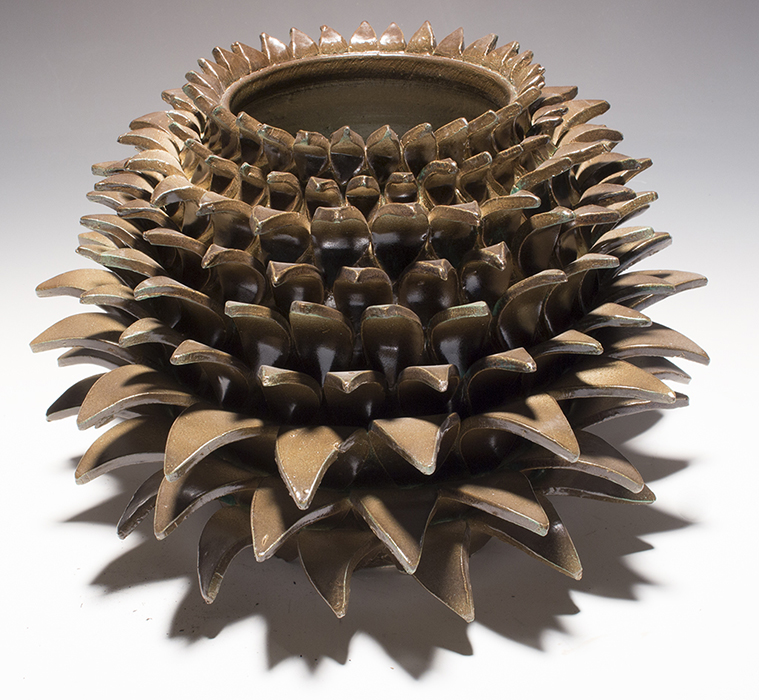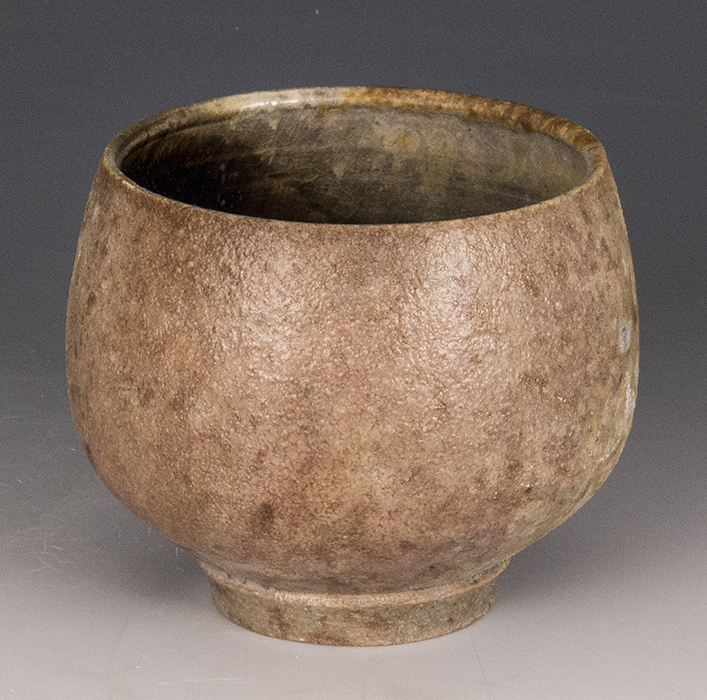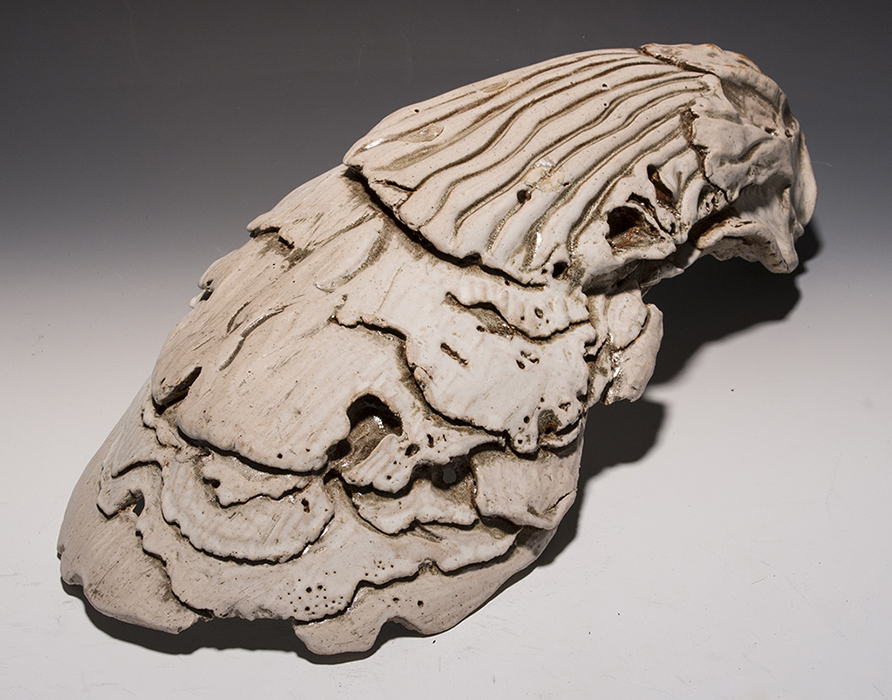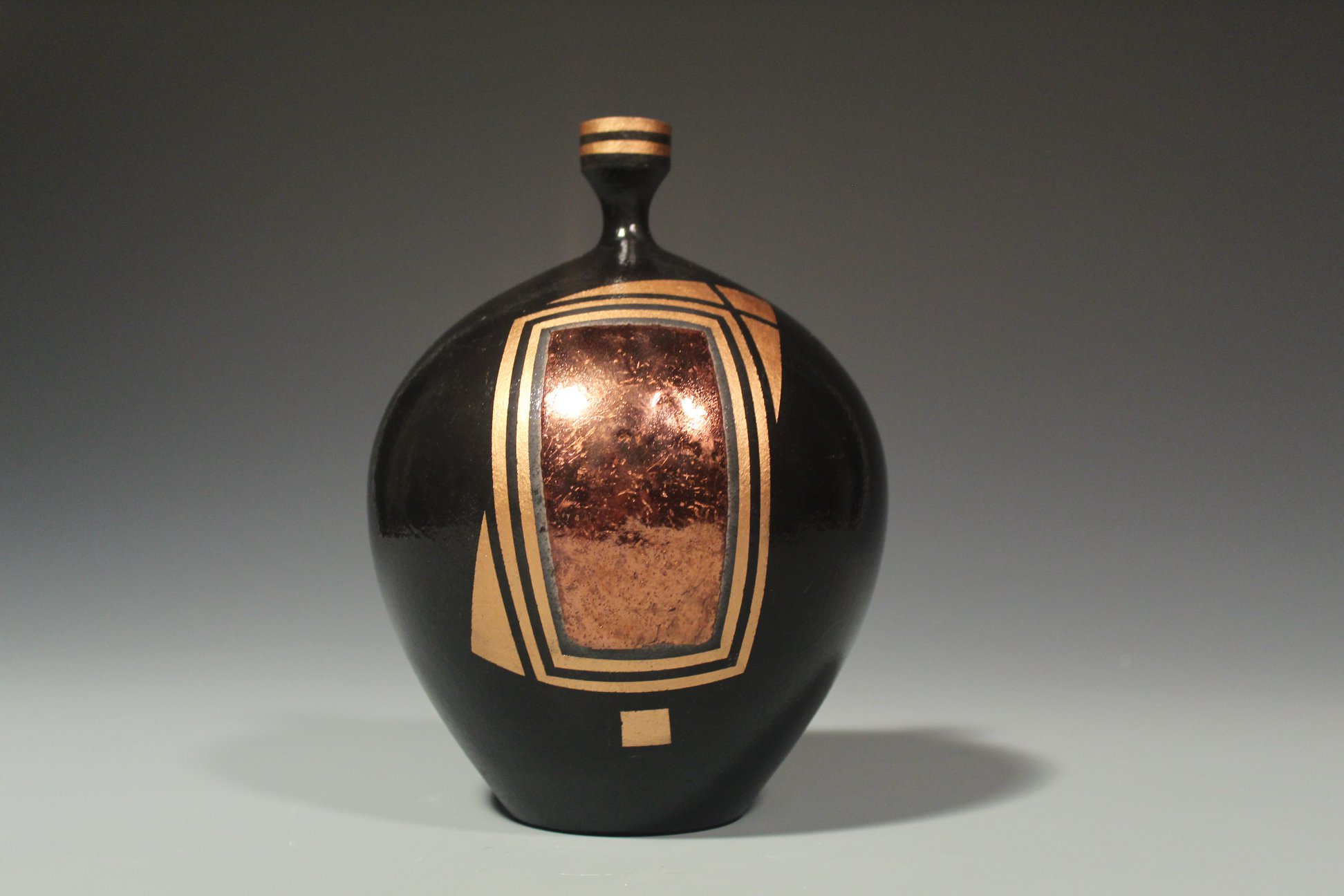CERAMICS EMPHASIS
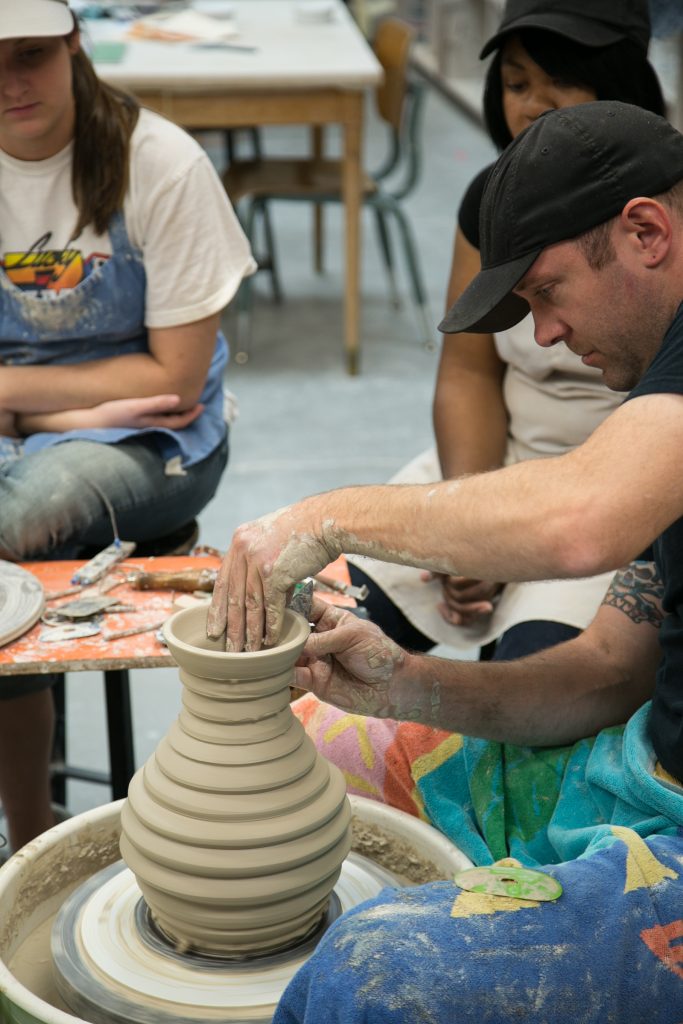
Playing in the Mud
The ceramics curriculum provides a learning environment and experience that prepares students for careers in ceramics. Students will learn various technical methods of clay construction, such as coil, slab, slip casting, and wheel to apply in traditional and nontraditional formats. They will also learn clay composition, glaze chemistry and kiln construction as well as kiln firing in our variety of kilns. We have two standard electric kilns, a cone 12 electric kiln, large gas kiln, wood kiln and two raku kilns as well as the ability to pit fire ceramics. We have a clay making facility where students are taught to mix a variety of different types of clay for any purpose. Ten electric pottery wheels, six large hand building tables and a state of the art glaze mixing lab complete the ceramics facilities.
Ceramics for non-majors: Studio Art Minor
Ceramics Student Work
Foundation Program
All incoming students who wish to enter the BFA programs of study are required to complete the 18 hour Foundation Program, then enroll in and successfully complete ART 200-Foundation Portfolio Review.
Until students have successfully completed the Foundation Portfolio Review, their advising transcripts will include a designation PRE-Fine Arts which serves to aid in advising and denotes what area of study the student is interested in pursuing. Freshman art students are encouraged to take the Foundation coursework over their first year at The W. Entering freshmen will be eligible for Portfolio Review after completing or in the semester in which they will complete their Foundation art courses (ART 103, ART 104, ART 105, ART 106, ART 107, ART 195). Students who have transferred all equivalent Foundation courses listed above from other institutions will complete one full semester of coursework at The W before their Portfolio Review.
Portfolio Review
All PRE-Fine Arts students are required to enroll in ART 200 The Portfolio Review Course as well as submit a portfolio of work from foundation art courses to be reviewed by the art faculty. This review is essential to gauge students’ potential for success, evaluate their mastery of fundamental skills, and provide an opportunity for reflection through self-assessment, all of which are necessary in order to face the challenges of upper-level coursework. Students will be advised the semester before they are eligible for the Portfolio Review to enroll in ART 200 and will be given more complete instructions at that time. If deferred, students are allowed to reapply only once to pass the Portfolio Review, and this reapplication must be in the student’s next semester at The W.
BFA Fine Arts - Ceramics Emphasis Curriculum
This information is presented for informational purposes. In the event of a discrepancy between this page and the Undergraduate Bulletin, the Bulletin should always be used.
General Education Curriculum
In keeping with The W's Mission, the General Education Program provides students with the skills, knowledge, and values they need to become independent, productive members of society in our continually changing world.
The W's General Education Program provides a foundation in the liberal arts that includes knowledge in the historical, literary, aesthetic, scientific, and cultural traditions that shape the world, and fosters skills that allow students to become civically responsible life-long learners ready to adapt to new challenges.
All students who complete the Mississippi University for Women general education program will demonstrate:
- Critical Thinking
- Effective Communication
- Cultural Literacy
- Quantitative & Technology Skills
- Understanding of Self, Global Societies, & the Natural World
- Life-Long Learning
Art Core Curriculum
All Art students must complete the Art Core. The Art Core is a broad survey of foundational, art mediums, and art history courses that are fundamental to the education of an artist.
Emphasis Curriculum
- ART 205 - Figure Drawing I
- ART 211 - Art History Survey I
- ART 212 - Art History Survey II
Primary and Secondary Studio Focuses:
(1) 200 level and/or (3-4) 300/400 level courses in your Primary Focus (12 semester hours)
(1) 200 level and (2) 300/400 level courses in your Secondary Focus (9 semester hours)
Art Electives (any course with ART prefix, other than Art 102) (11 semester hours)
Participation in:
- Annual Juried Student Exhibition in the freshman, sophomore, and junior years (while at MUW)
- Senior Exhibition
Total Hours Required for BFA in Fine Arts: 124 Semester hours
Exhibition Seminar
All freshman, sophomore, and junior art majors are required to enter artwork in the Annual MUW Juried Student Exhibition. ART 199 Exhibition Seminar Exhibition Seminar, a zero-credit course, serves as record of participation with students graded as Pass/Fail. A student that fails the Exhibition Seminar will be required to exhibit work at an alternate location in order to have the grade changed to pass.
